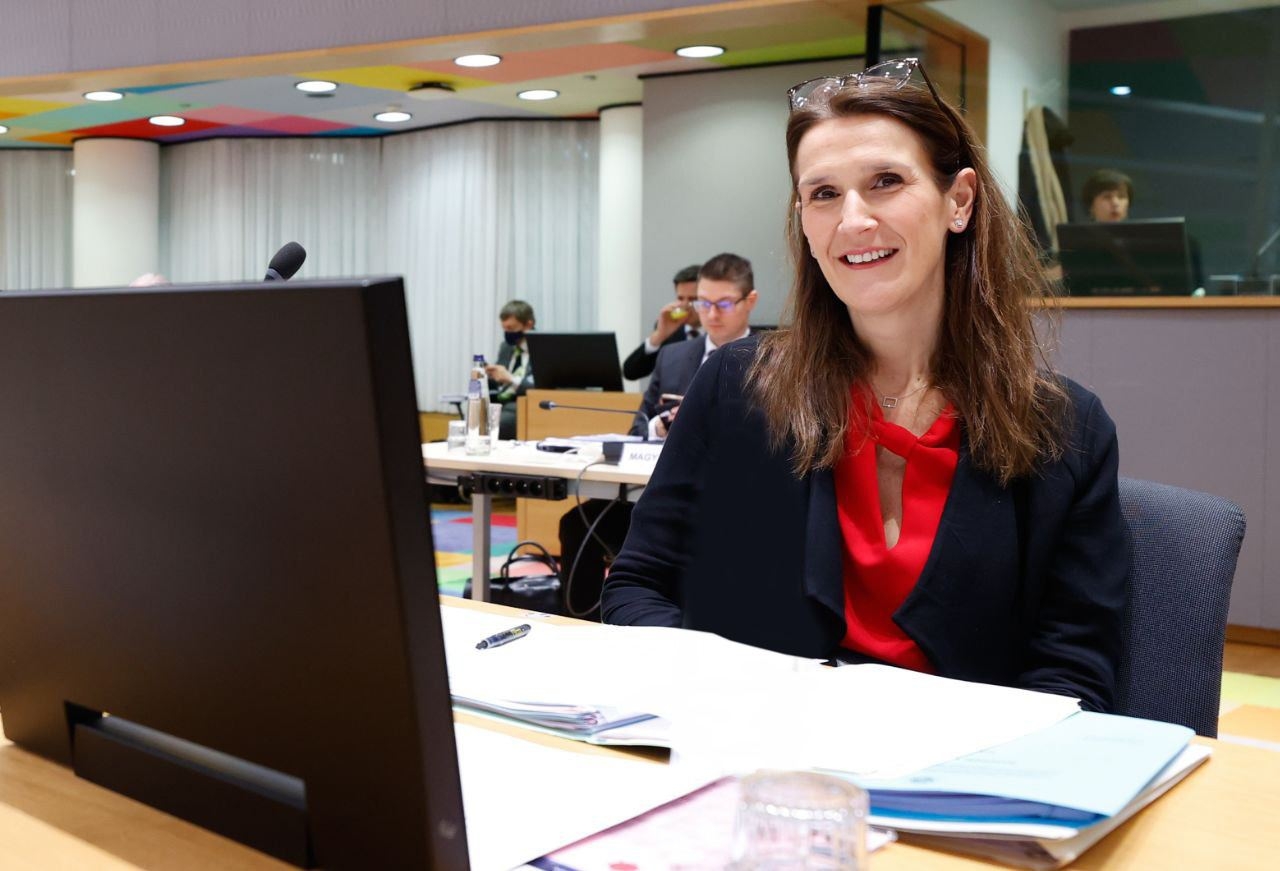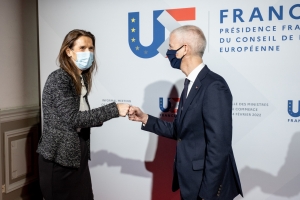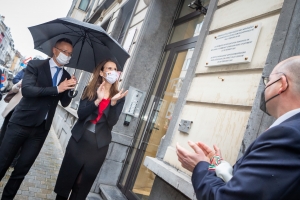Meeting of the Council of Ministers for European Affairs held on 21 February: conclusions
On Monday 21 February, the Deputy Prime Minister and Minister for Foreign Affairs, Sophie Wilmès, met with her counterparts in Brussels for a Foreign Affairs Council.
Security situation in Europe
The Council began by discussing the security situation in Eastern Europe. The tension surrounding the build-up of Russian troops on the border with Ukraine remains as high as ever. The Council held a discussion on this subject with the Ukrainian Foreign Minister, Dmytro Kuleba, with whom Deputy Prime Minister Wilmès had a meeting yesterday (Sunday 20/2) on the fringes of the Munich Security Conference. Deputy Prime Minister Wilmès reiterated our country's support for the sovereignty and territorial integrity of Ukraine and stressed that de-escalation is the top priority.
Sophie Wilmès said, "There is a very large military, logistical and medical deployment on the Ukrainian borders. This means that we are dealing with a Russia that is ready to invade us if it wants to. There is currently no retreat or de-escalation, despite what Russia claims. In the meantime, we are continuing to make significant diplomatic efforts to find a political solution to this crisis. Dialogue must continue unabated at NATO and OSCE level, even while Belgium continues to advocate adding dialogue between Russia and the EU", said Sophie Wilmès. "Moreover, there is a package of economic, financial and individual sanctions - a powerful deterrent - that can be put in place quickly if necessary. There is no question that we are ready to implement them."
The Council returned to the subject in the early evening, when it became clear that the Kremlin was going to declare the independence of the Donetsk and Luhansk oblasts. Sophie Wilmès said, "Belgium condemns the recognition of separatist regions in Ukraine. This is a violation of international law, the Minsk agreements and the territorial integrity of Ukraine. We will work on strong and united action, in close cooperation with EU and NATO partners."
Mali
Mali was again a topic of discussion in the Council. Last week, the European partners collaborating in the framework of operations Barkhane and Takuba considered that the conditions were no longer being met for them to continue their military engagement in the country and thus announced an upcoming withdrawal. Through its Deputy Prime Minister, Belgium raised the question of the next steps with its European partners, considering the continuation of the fight against terrorism and the stability of the region to be priorities despite the latest decisions. Sophie Wilmès said, "With regard to Mali specifically, our objectives are an end to the transition period as quickly as possible and the containment of the Wagner Group. As a result, Belgium wants to maintain EUTM Mali, even if a review of the strategy and an adaptation of its mandate to take account the new realities are inevitable and within a short timeframe."
In general, the Deputy Prime Minister reiterated Belgium's long-standing position on the Sahel, which calls for work on the ground to bring about civil and political change by initiating the necessary reforms to public accountability, governance and the rule of law, in addition to security and development support.
Bosnia and Herzegovina
The European ministers are paying particular attention to the ongoing political crisis in Bosnia-Herzegovina. Pro memoria, Deputy Prime Minister Wilmès had already had the opportunity to discuss this issue in detail during her bilateral meeting with her counterpart, Ms Bisera Turković. She had expressed her opposition to the unacceptable attitude of Republika Srpska in boycotting the central institutions and thus threatening the integrity of the country. She had also stressed the importance of electoral reform, which will involve amending the Constitution. During the Council, Belgium supported the continuation of European engagement in Bosnia and Herzegovina, and reiterated its support for High Representative Schmidt. Our country sees the packaging of EU financial assistance as a lever that could be used as a signal in relation to the policy pursued by President Dodik.
Gulf countries
This Council also saw a meeting between European ministers and the Gulf Cooperation Council (GCC), which brings together six Persian Gulf States. The Deputy Prime Minister welcomed this meeting, which aimed to deepen the dialogue between the two entities. Sophie Wilmès said, "During my recent visit to the Sultanate of Oman and the United Arab Emirates, I heard from my counterparts a deep sense of disappointment regarding the European Union's absence on a whole series of issues of great importance to them. We must be able to hear and respond to these criticisms if we really want to make the EU a key player on the international scene. A stable Gulf region is in the interests of the region and of Europe. In addition to security, human rights and economic cooperation were high on the agenda. We have seen progress in all these areas, but there is still room for improvement."
Climate diplomacy
The European objectives of reducing greenhouse gases by at least 55% by 2030 are some of the highest ambitions in the world in the fight against global warming. For these efforts to really pay off, the EU must also convince its international partners to follow suit. This is why the Member States, the Commission and the European External Action Service have decided to set up climate diplomacy. During this Council, the European ministers adopted conclusions on this issue in order to reaffirm the commitments made at COP26 in Glasgow, encourage international partners to increase their ambitions and ensure follow-up on mitigation, adaptation to the effects of climate change, and climate financing. Belgium is satisfied with these conclusions and took advantage of these discussions to bring its points of attention to the fore. In addition to the energy transition through its expertise in offshore wind and hydrogen, Belgium is paying particular attention to supporting the least developed countries and the oceans, as well as to considering the impacts of climate change on human rights. The financial contributions, especially in Africa, aim to increase the adaptation and resilience of the most vulnerable countries to the effects of climate change. For the oceans, the priorities are to conclude a binding agreement to protect biodiversity on the high seas, promote zero-emission maritime transport and prepare our ports for the energy transition. Sophie Wilmès emphasised that our country has expertise in this field and is ready to use it in the context of climate diplomacy.



